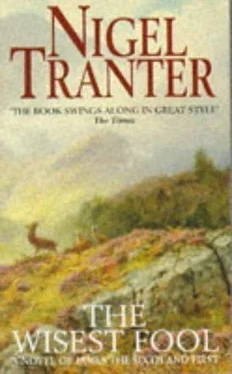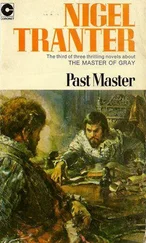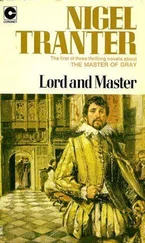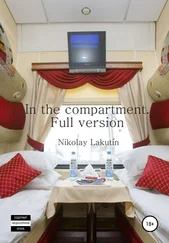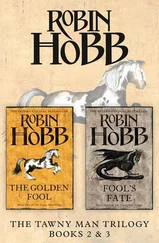Nigel Tranter - The Wisest Fool
Здесь есть возможность читать онлайн «Nigel Tranter - The Wisest Fool» весь текст электронной книги совершенно бесплатно (целиком полную версию без сокращений). В некоторых случаях можно слушать аудио, скачать через торрент в формате fb2 и присутствует краткое содержание. Жанр: Исторические приключения, на английском языке. Описание произведения, (предисловие) а так же отзывы посетителей доступны на портале библиотеки ЛибКат.
- Название:The Wisest Fool
- Автор:
- Жанр:
- Год:неизвестен
- ISBN:нет данных
- Рейтинг книги:4 / 5. Голосов: 1
-
Избранное:Добавить в избранное
- Отзывы:
-
Ваша оценка:
- 80
- 1
- 2
- 3
- 4
- 5
The Wisest Fool: краткое содержание, описание и аннотация
Предлагаем к чтению аннотацию, описание, краткое содержание или предисловие (зависит от того, что написал сам автор книги «The Wisest Fool»). Если вы не нашли необходимую информацию о книге — напишите в комментариях, мы постараемся отыскать её.
The Wisest Fool — читать онлайн бесплатно полную книгу (весь текст) целиком
Ниже представлен текст книги, разбитый по страницам. Система сохранения места последней прочитанной страницы, позволяет с удобством читать онлайн бесплатно книгу «The Wisest Fool», без необходимости каждый раз заново искать на чём Вы остановились. Поставьте закладку, и сможете в любой момент перейти на страницу, на которой закончили чтение.
Интервал:
Закладка:
"In the Name of the Father, and of the Son, and of the Holy Ghost!" he thundered. There was going to be no doubt about the Deity's involvement in this wedding.
It was at this moment, carefully calculated evidently, that there was a diversion. The great north doors, to the High Street, closed some time before to keep out the town rabble, were suddenly and noisily flung open. All heads turned to stare, and Patrick Galloway, hand still upraised, looked both thunderstruck and ready to call down heaven's thunderbolts.
Two uniformed members of the Town Guard stood within the doorway, and one of them thumped with the butt of his halberd on the flagstones, shouting, "Make passage and silence for His Grace's Great Commissioner, my Lord High Treasurer the Earl of Dunbar, Knight of the Garter!"
Doddie Home came strolling in, with his curious rolling walk, half-a-dozen overdressed young gentlemen in his train. The doors were shut again.
George Heriot did not know whether to groan or grin. This was James's doing, undoubtedly-for he and Dunbar cordially loathed each other, and the Earl would not have shown his heavy-jowled face here had he not been expressly commanded to do so. But it was turning this long-waited-for wedding into a show, another charade like the Logan trial-for some purpose, not clear, but which had nothing to do with matrimony, he had no doubt.
The entry had a chastening effect on Master Galloway, at least. Quite put off his stride, he frowned, tugged his beard, made a sort of bow to the King's representative, and waved vaguely towards the front of the congregation-where was the only room left in this crowded place, and where the Earl would have installed himself anyway. This inevitably put Dunbar and his supercilious attendants only a foot or two behind the bridal party-to the excitement of the Primrose daughters.
Less than amiably, Galloway swung on Master Balfour and gestured that he should proceed with the ceremony meantime. A little flustered, that youngish man made a false start or two before getting under way.
The Presbyterian wedding ceremony was not a long one, and fairly simple. Quite soon Galloway had recovered himself and moved in to take over at the significant stage of the exchange of vows and the fitting of the ring. Thereafter, having with some speed declared the couple man and wife, he launched into a rousing and almost accusatory address to the pair before him on the duties and dangers of holy matrimony, laying emphasis on the pitfalls rather than the delights and sonorously warning all present of the results and damnations of the sins of the flesh, in some detail. It was at this stage, unhappily, that the noise from above began to become distracting. The old city of Edinburgh, cramped within its walls on its high spine of rock, was notoriously short of space-which was why the lands and closes were so crowded and the tenements so tall. Prison space was in short supply as all else, and at the Reformation the enormous cathedral-like church of St. Giles had seemed a godsend to the harassed magistracy. The lofty groined-vaulted ceilings soaring into dimness were obviously quite unnecessary for modest and reformed Presbyterian worship, and so timber entresol floors had been inserted above the three churches into which it was subdivided. Indeed, the Tolbooth Kirk was so named for excellent reason, since the Town Council met therein, courts were held and even parliaments had on occasion sat there. It so happened that the garret section above the Little Kirk was used for the incarceration of offending whores, prostitutes and common wantons-and these were not infrequently the most vocal and quarrelsome of the prisoners. A major engagement appeared to have broken out upstairs, and thumps, bangs and shrill invective penetrated the floorboards with ease. With the congregation-perhaps even the new husband and wife-stretching ears to catch the gist of the disagreement there rather than his own stern words of admonition, Patrick Galloway turned to glare at Balfour and sweep a pointing and commanding finger heavenwards. The younger minister hurried off to see if he could restore order aloft, either by the fear of God or of the Town Guard. Keenly interested, all save Galloway listened on his progress. By the time that the signing of the register was over, some quiet had been achieved above-but now the congregation itself was stirring and talking. Galloway soon put a stop to that, by striding to the pulpit, banging fist on Bible, and commencing his sermon. The proclaiming and expounding of the Word was considered to be one of the principal planks of Presbyterian worship and no services got off without a sermon-even weddings. Heriot had not really hoped to escape one on this occasion, when he had reconciled himself to Galloway, and now he wondered whether the noise overhead might not have been better left unchecked as a dissuading influence. At least the man was not preaching this time in Latin-as he had done once, at Leith harbour, on the first arrival from Denmark of the fourteen-year-old Queen Anne. He had gone on then for over an hour.
In the end it was probably Dunbar's young gentlemen, rather than the street ladies above, that the congregation had to thank for obtaining their release after another half-hour, who, with their undisguised contempt for preachers so infuriated the divine by their cantrips and unabashed teasings of the bridesmaids that he could no longer continue. To the relief of all, he abruptly bellowed Amen at them, hurled a spluttering and angry benediction and stormed from the pulpit and out, an exit even more dramatic than his entry-and without a further glance at the couple he had married.
It was ironical, thereafter, that the first to congratulate the happy pair inevitably had to be Doddie Home, who did so stiffly, formally, before marching out first from the church. Presently, in the High Street, where a large crowd had assembled, Heriot with an arm round his laughing bride to protect her from the crush, guided her over to the steps of the Cross, amidst cheers. Mounted there, he thanked all who had turned out so kindly to wish them well, declared that he was the most fortunate man in Scotland and announced that free wine, ale and meats would be dispensed for all comers until the evening curfew sounded-this to deafening applause. Then, aided by Alison, he splashed wine, by hand, from a broached cask, over all within range, in the traditional manner and tossed handfuls of placks and groats from a sack for the bairns-and others-to scramble for. A firework display would be held, he shouted, at dusk in the park of the Palace of Holyroodhouse, when there would be further refreshment. All were invited-and the Netherbow Port and Watergate would be kept open after the normal closing hour by special and kind permission of the new Provost, Sir John Arnot, here present. On that happy note a move was made by the entire wedding company, down the High Street and Canongate to Holyroodhouse, which James had insisted was to be the venue of the marriage feast and celebrations, as his royal gift-although Geordie might find it expedient to have some little redecorating and furbishing up put in hand previously, since the place was no doubt in need of it now. Coaches had been hired to convey the bridal retinue and guests down to the palace, but Alison in her lightsome joy would have none of it. The sun shone, she pointed out, they had been cooped up in that church for too long and it was less than a mile of distance. This was the day of days and-they would take the crown of the causeway and walk. Her groom was nothing loth.
In the end, everybody walked, in a lengthy narrow procession- for Alison's remark about the crown of the causeway was no mere figure of speech and only the raised centre of the cobbled street was passable for the lightly shod or the fastidious, the wide open gutters at either side being by no means wide enough, for all the waste matter, sewage, household soil and slops, the effluvia of stables, byres, styes and hen-runs, which the good citizens threw therein, with or without the warning cry of "Gardyloo!", in the simple faith that gravitation, evaporation, or speedy decomposition would before long remove it. Mary Gray it was who made the suggestion that a street fiddler should lead them on their way- there were always plenty of these in Edinburgh, though not always sober enough to fiddle walking, or even standing up. They were fortunate enough to find one who was, in a close-mouth; and so, to a jiggling, gay rant, they wound and tripped their way down the long, sloping street, between the canyon-walls of the tall, beetling tenements, hung with washing and folk waving from windows and balconies and shooing out of the way children, dogs, pigs and poultry-although most of the way Alison, on her husband's arm, danced rather than walked, despite her finery, her train wrapped round her like any shawlie. She even constrained the King's Goldsmith to skip a step or two, every now and again, though in highly self-conscious fashion. Once, glancing round rather guiltily after one of these indiscretions, it was to discover, not far behind, the magnificent figure of Patrick, Lord Gray, all in white satin slashed with black, Mary on one arm, Lady Marie on the other, jiggling to the lilting melody with entire elan.
Читать дальшеИнтервал:
Закладка:
Похожие книги на «The Wisest Fool»
Представляем Вашему вниманию похожие книги на «The Wisest Fool» списком для выбора. Мы отобрали схожую по названию и смыслу литературу в надежде предоставить читателям больше вариантов отыскать новые, интересные, ещё непрочитанные произведения.
Обсуждение, отзывы о книге «The Wisest Fool» и просто собственные мнения читателей. Оставьте ваши комментарии, напишите, что Вы думаете о произведении, его смысле или главных героях. Укажите что конкретно понравилось, а что нет, и почему Вы так считаете.
